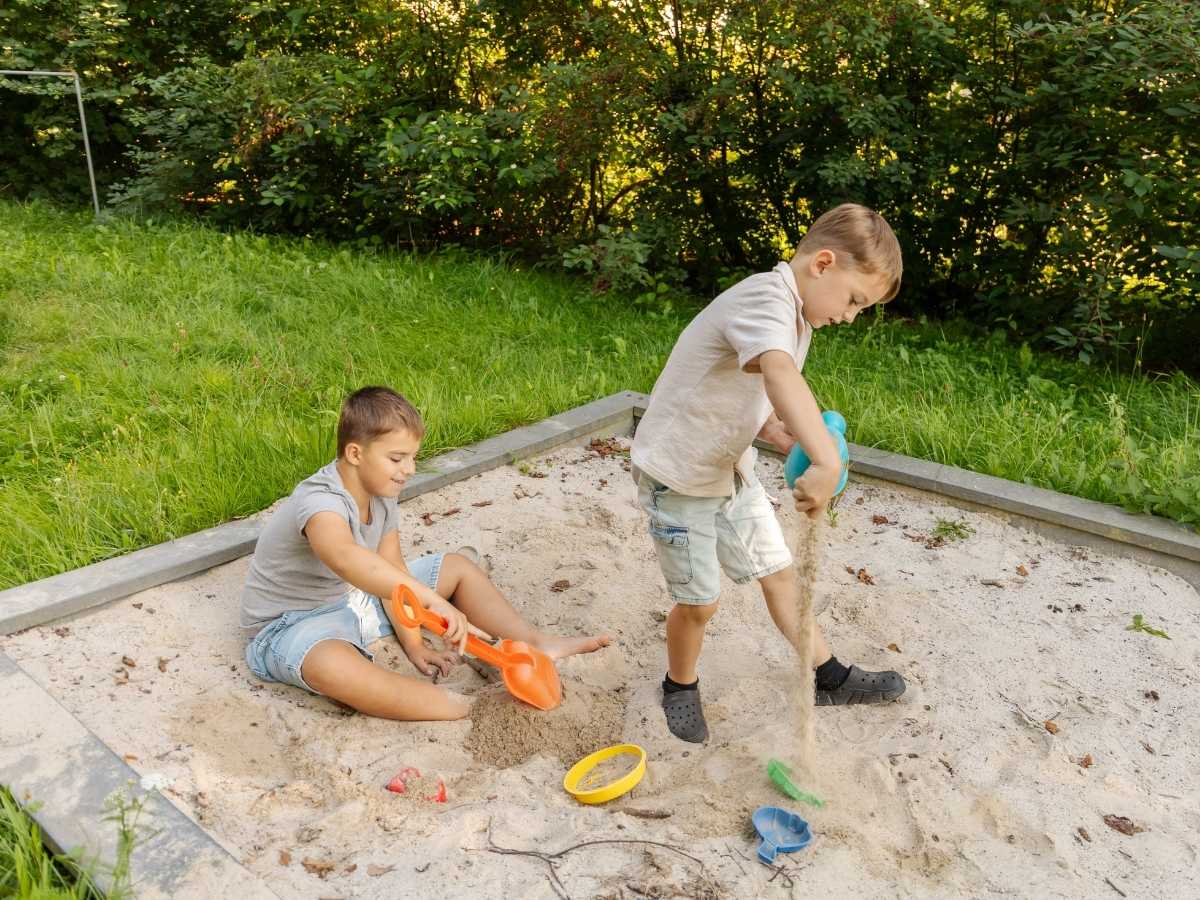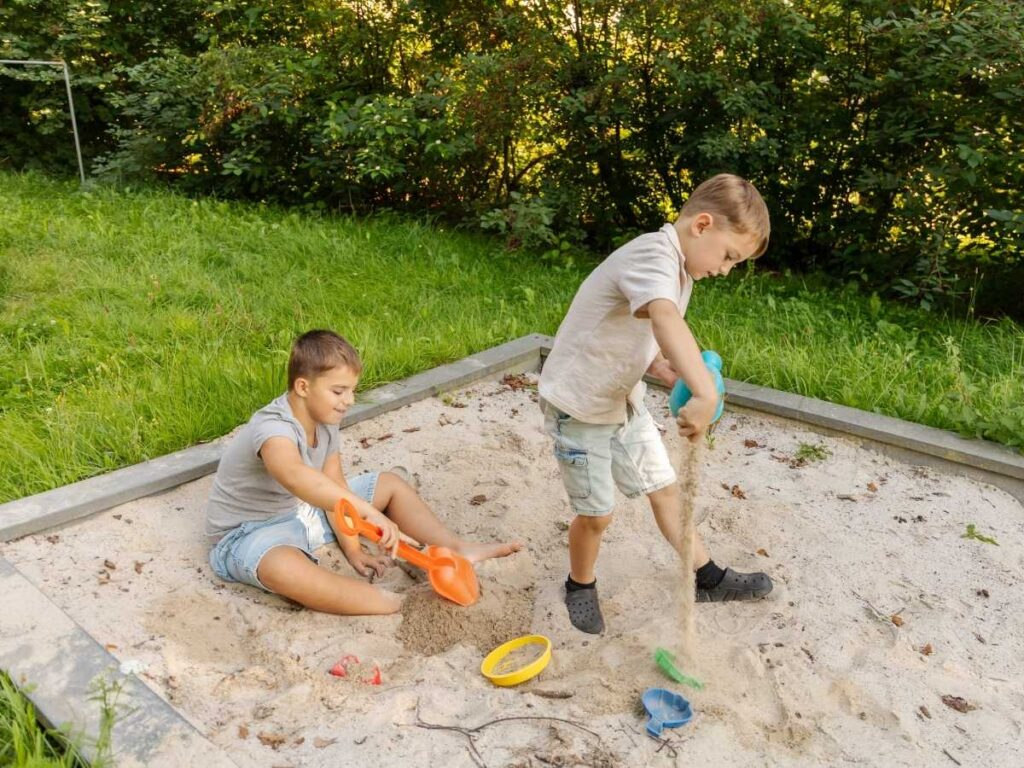

By Nadine Schumont, Licensed Davis® Facilitator
Some days in this work stay with you forever. Today was one of those days.
A 10-year-old former client asked his parents if he could visit me on his day off from school. Not because he was in crisis. Not because something was wrong. Just because he was in town and wanted to see me.
He’d completed Davis Concepts for Life® with me two years ago, when he was eight. That he wanted to come back just to visit? That alone made my day.
We sat down together, and I asked how things were going. His mom had mentioned a few areas we might explore, but I wanted to hear from him first.
“Let’s think about situations that sometimes feel hard,” I suggested. “Moments where you might wish you’d handled things differently.”
He nodded and launched straight into his story.
Back in September, he’d dug a hole in the school sandbox. A really good hole. Ever since, he’d been watching it, protecting it, making sure it stayed exactly how he wanted it.
Then last week, another child started filling it with wet sand.
“I got so upset,” he told me. “We were yelling at each other, and then… I hit him.”
The shame in his voice was palpable. He knew he’d made a mistake. But more importantly, he couldn’t understand why he’d lost control over something that now seemed so small.

We went into the clay room – the heart of Davis work. I asked him to model what happened, but in reverse order. This is something we do to help children see the sequence of events and recognize where they had choices.
He modeled:
That last model – the calm before the storm – that’s where the magic happens.
Looking at his clay scene, I asked, “Who made this hole?”
“I did – back in September.”
“Do you own the school property?”
He actually laughed. “No.”
“So if the sandbox belongs to everyone, does that mean anyone can play in it?”
He nodded, already seeing where this was going.
“Okay,” I said, “so if we go back to that moment when you were still in order – before your emotions took off – what other decision could you make?”
He paused. His face changed. A smile spread across it.
“I could just go make another hole.”
I’ve been doing this work for years, and these moments never get old. That instant when a child realizes they have choices they never saw before. When the rigid thinking that trapped them suddenly becomes flexible.
We weren’t done yet. Using the Davis “Creating a New Behavior” procedure, we modeled what that new choice would look like. How he could recognize the moment before his emotions ramped up. How he could choose differently.
As we worked with the clay, he started connecting dots on his own.
“It’s all self-created energy, isn’t it?” he said. “My thoughts created my feelings, and my feelings created what I did.”
This is a 10-year-old, folks. Understanding emotional regulation at a level many adults never reach.
Later in our session, completely unprompted, he made another observation:
“Sometimes I use disorder to frustrate my mom.”
I hadn’t brought up his home behavior. His mom hadn’t mentioned this pattern. He discovered it himself, just by having the conceptual framework to understand his own actions.
We talked about how he could use his “dial” – an internal regulation tool from his original program – to turn down his energy when emotions rise. How he could walk away, breathe, and come back when ready.
“Yeah,” he grinned, “I can turn my dial down and make a different choice.”
If your child:
They’re not being defiant. They’re not manipulative. They’re missing fundamental life concepts that help us understand:
This is what amazes me about Davis work. Two years after his program, these concepts aren’t just remembered – they’re alive and growing.
I didn’t reteach him anything today. The concepts he mastered at age eight were still there, ready to apply to new situations. They’d matured with him.
His mother tells me he’s doing so much better overall. When he struggles and asks “But why?” she simply responds, “What did I tell you?” This gentle cue helps him pause and access what he already knows.
Every child who comes through my practice leaves with these tools:
But more than tools, they leave with an invitation – to keep growing, keep discovering, keep applying these concepts to new challenges as they arise.
After 10 years as a Davis® Facilitator, I can tell you this: the children who seem most “stuck” often have the biggest breakthroughs. The boy who couldn’t let go of a sandbox hole? He’s now a child who understands flexibility, choice, and self-regulation.
His parting words to me today? “Thanks for helping me see I always have another choice.”
That’s why I do this work. Not to control behavior, but to unleash understanding. Not to manage children, but to empower them.
Because every child deserves their “I could just make another hole” moment.
The Davis Concepts for Life® program provides individuals with the conceptual foundation necessary for emotional and social growth. Through clay modeling and experiential learning, participants master life concepts that many of us take for granted but that can be revolutionary for neurodivergent minds.
The program typically runs 30-60 hours over several weeks, paced to match each individual’s needs. It’s suitable for ages 8 through adult and particularly beneficial for individuals with autism, ADHD, and related profiles – including multi diagnosis and treatment resistant individuals.
If this story resonates with your family’s experience, you’re not alone. Many children are missing these fundamental concepts, leading to behavioral challenges that seem insurmountable.
They’re not. With the right approach, breakthrough is possible.
Find a Licensed Davis® Facilitator Near You
Learn about the Davis Concepts for Life® Program
Have questions? Or unsure whether this approach is right for you? Contact us
Nadine is a Licensed Davis® Facilitator whose own journey own with undiagnosed ADHD and dyslexia led her to take a Davis program in 2017. Since then, Nadine had been supporting neurodivergent individuals and their families. Based in Stratford, Ontario, Canada, Nadine provides both in-person and online programs. This story is shared with permission, with identifying details changed for privacy.
Have a story to share about your Davis® experience? We’d love to hear from you. Contact us